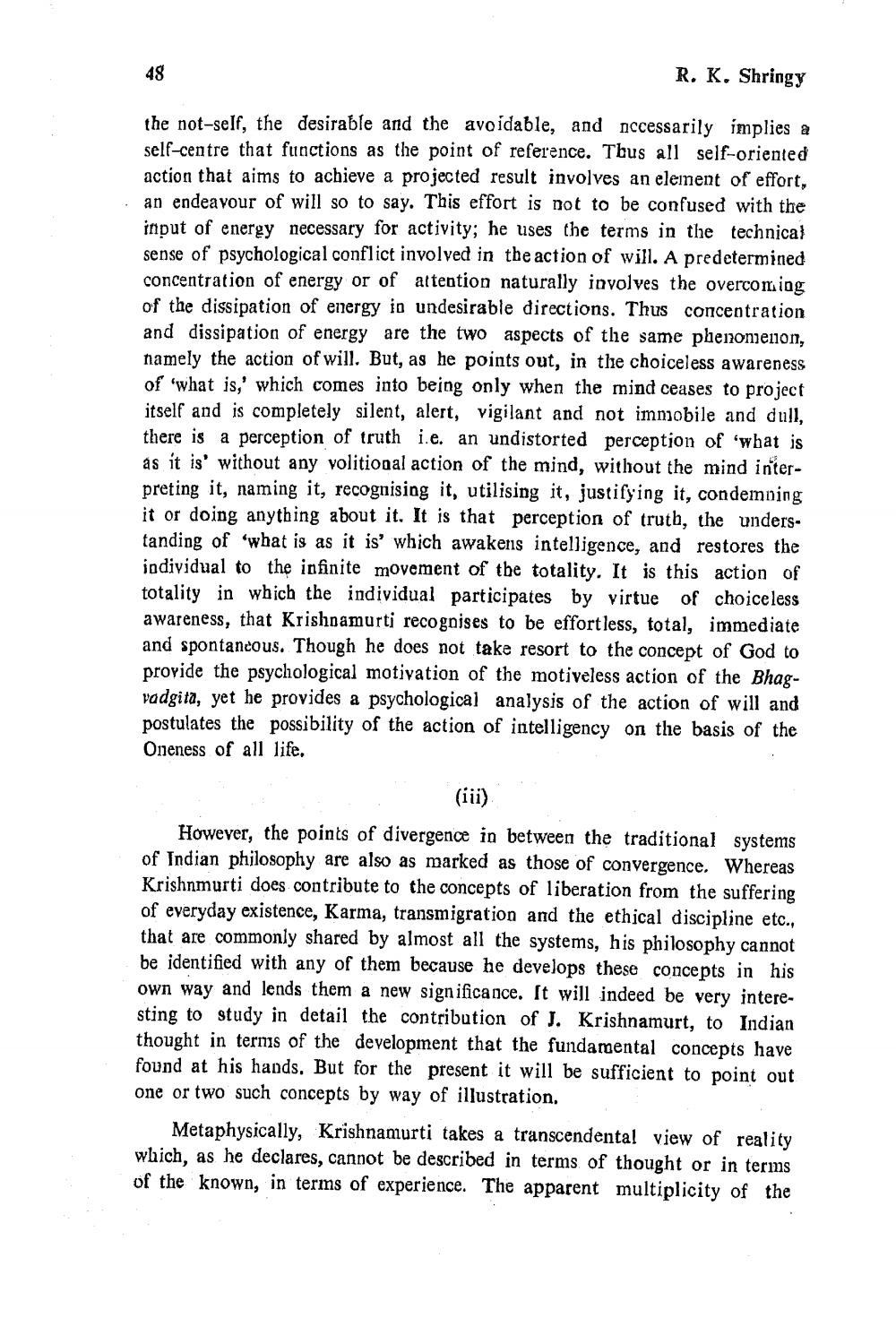________________
R. K. Shringy
the not-self, the desirable and the avoidable, and necessarily implies a self-centre that functions as the point of reference. Thus all self-oriented action that aims to achieve a projected result involves an element of effort, an endeavour of will so to say. This effort is not to be confused with the input of energy necessary for activity; he uses the terms in the technical sense of psychological conflict involved in the action of will. A predetermined concentration of energy or of attention naturally involves the overcoming of the dissipation of energy in undesirable directions. Thus concentration and dissipation of energy are the two aspects of the same phenomenon, namely the action of will. But, as he points out, in the choiceless awareness of 'what is,' which comes into being only when the mind ceases to project itself and is completely silent, alert, vigilant and not immobile and dull, there is a perception of truth i.e. an undistorted perception of 'what is as it is' without any volitional action of the mind, without the mind interpreting it, naming it, recognising it, utilising it, justifying it, condemning it or doing anything about it. It is that perception of truth, the understanding of 'what is as it is' which awakens intelligence, and restores the individual to the infinite movement of the totality. It is this action of totality in which the individual participates by virtue of choiceless awareness, that Krishnamurti recognises to be effortless, total, immediate and spontaneous. Though he does not take resort to the concept of God to provide the psychological motivation of the motiveless action of the Bhagvadgita, yet he provides a psychological analysis of the action of will and postulates the possibility of the action of intelligency on the basis of the Oneness of all life,
(iii)
However, the points of divergence in between the traditional systems of Indian philosophy are also as marked as those of convergence. Whereas Krishnmurti does contribute to the concepts of liberation from the suffering of everyday existence, Karma, transmigration and the ethical discipline etc., that are commonly shared by almost all the systems, his philosophy cannot be identified with any of them because he develops these concepts in his own way and lends them a new significance. It will indeed be very interesting to study in detail the contribution of J. Krishnamurt, to Indian thought in terris of the development that the fundamental concepts have found at his hands. But for the present it will be sufficient to point out one or two such concepts by way of illustration.
Metaphysically, Krishnamurti takes a transcendental view of reality which, as he declares, cannot be described in terms of thought or in terms of the known, in terms of experience. The apparent multiplicity of the




